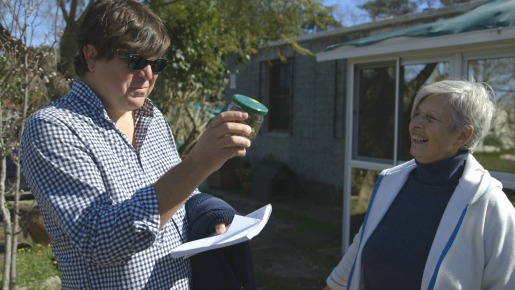
“Rolling Papers” follows The Cannabist, a Denver Post product chronicling legal marijuana in Colorado. The story is about more than journalism. The state’s legalization is a brazen cultural experiment. Should it succeed, other states may follow the trail Colorado blazed.
Legalized weed impacts the local economy, political power players and a culture hungry for mood-altering drugs. Yet “Rolling Papers” gives those meaty questions little attention. It flits across the evolving landscape, like shuffling through a newspaper’s sections without learning anything new.
The film leaves an impression, but it’s too hazy and, even worse, less than serious at times.
Ricardo Baca serves as the story’s entry point. He’s a former Denver Post music scribe tasked with overseeing The Cannabist. While many of the people on camera are high, Baca takes his duties seriously. He brings a boyish charm to the film as well as an unlikely gravitas.
It would appear The Denver Post chose well.
Creating a news division to cover legal pot is daring, particularly for a paper shedding long-time talent. It’s the equivalent of a face slap, and something journalism badly needs.
So does The Cannabist examine how the state’s coffers are impacted by legal pot? What about drug abuse figures or other societal indicators? Can legalization deliver a body blow to the black market?
According to “Rolling Papers,” The Cannabist cares more about pot reviews and investigating a manufacturer skimping on THC levels. Where’s the high, man?
Director Mitch Dickman keeps the visual snazzy, and his song selections percolate in near-perfect harmony. The songs’ lyrics can be too “on the nose” for the subjects at hand, but some choices still prove irresistible.
Parenting on Pot
One intriguing story line involves a pot-smoking mom writing the Cannabist’s parenting column. She’s defensive about her habit and worries Child Protective Services might frown on it.
“I know I’m a good parent. He’s … awesome,” she says, motioning to her adorable son just outside the frame.
We’re more intrigued when a fellow Denver Post employee questions the column’s wisdom. This reporter once covered local child abuse cases involving drugs, and the column gives her pause. That narrative thread is never pulled. Baca thanks his colleague for her feedback, and that’s the end of it.
Much like “Truth” inadvertently revealed the folly of modern journalism, “Rolling Papers” provides a similar service. The film’s final third finds Baca investigating the Uruguayan pot legalization model. He’s obsessed with landing an interview with the country’s president, Jose Mujica. It feels like the kind of journalism “get” the industry obsesses over in favor of more illuminating research.
Medical Marijuana to the Rescue
The documentary delivers some poignant moments, including a child with leukemia given a second chance thanks to medical marijuana. It’s a worthy subject, but these kind of heartwarming tales need context. Can the treatment help others? Are western doctors embracing its potential? If not, why not? The Cannabist may be providing just that, but it’s not reflected here.
We can all giggle at the Cheech and Chong stoner image, but legal pot is serious business.Yet “Rolling Papers” brushes aside pot’s negatives. We briefly learn of a college student who leaped to his death after eating pot edibles. His death, “‘cast a pall on things,” one Cannabist reporter admits in a biased bit of candor.
One scene covers a Denver Post public forum on pot. A concerned woman rails against its negative effects while a Cannabist employee is shown rolling his eyes. That’s fine, assuming we get to hear the woman’s arguments. Instead, the sequence becomes a montage of people talking, edited so furiously that nothing of consequence emerges.
In roughly 80 minutes “Rolling Papers” touches on The Cannabist, parenting while high, Colorado’s impact on the country and the pot critics who get paid to toke up. It’s too massive a tale for any one movie, let alone a feature that gives several pot strains a Hollywood-style close up. Those recurring interstitials detract from the film’s sobering themes.
‘Rolling Papers’ and Google
“Rolling Papers” strains to give legitimacy to The Cannabist, but often has the opposite effect. One contributor wishes he had Googled “investigative journalism” while driving to an assignment. The outlet snares a pop culture victory when Whoopi Goldberg offers to write a regular column. Then she, or her agent, have second thoughts.
And watching the outlet’s pot critics review a product sample, giggling like college freshman, hardly inspires confidence. Suddenly, the gulf between a traditional wine critic and a pot devotee seems like a yawning chasm.
These are all telling moments, but “Rolling Papers” is too busy glorifying – or inadvertently denigrating – The Cannabist to notice.

